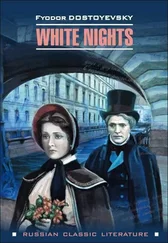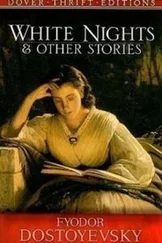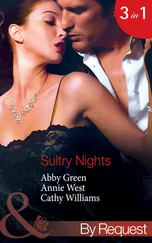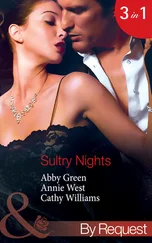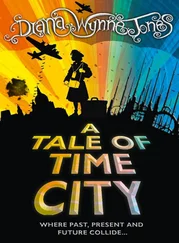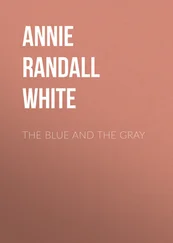Our bleeder was not a regular. The driver kept a look out for her. Those mornings she was running late, just exiting the small door of the house as our chariot pulled into view, the girl moved down the drive at a slither, her leather clad arms full of bags and bangles, not a book or proper paper weighing her down. Once aboard, she disappeared down the aisle of the bus. We left the last seat empty for her next to the Emergency Exit. We figured her for someone who bet on solitude to make her happy until she found her way out of this place and into the big thing for which she was meant.
Her name I never was clear on. Everyone called her something different. It was one of those headliners which had a purr to it — Katerina, Katya, or Katelyn — the derivative of some family name which must’ve belonged to a distant grandmother. Luckily, she was the type of girl who lent herself to nicknames and variations — Katie, Kathy, Kat. I just called her K, as in the letter, because it was easy to remember and it allowed her to be whomever I wanted her to be on that particular day or hour.
The first night K arrived I understood that Father was meeting Mother. I could tell by the closeness of his shave, the way he tucked and bothered. K had driven over, a move Father usually would’ve declined as he always drove our girls. This evening when K arrived, he’d barely looked at her, his usual attempt at conversation replaced with a nervous fidgeting around in the kitchen for his wallet and his keys. “These them?” K said, pulling out the clunky iron ring from under a stack of newspapers on the counter.
She held the ring out in front of her. When it came to keys, Father wasn’t frugal. He had an eye for lock boxes and bike chains, anything that could be secured and then unsecured through a series of numbers that tested logic. Father never threw out an old key because he could never remember what it belonged to. There was probably a key on that chain that unlocked his dorm room in college. I figured it for the small, three-toothed brass.
Once he was gone, K and I were left standing in the kitchen. She eyed herself in Mother’s windows as she crossed into the living room. Though she wasn’t overly thin, she moved with a balletic confidence.
“Do these things open?” she said, nodding at the window. She stood on the back of the couch, undoing the upper lock.
“We usually keep them closed,” I said.
“You get that one,” she said.
Once the windows were cranked, she smoked a cigarette overlooking the deck.
“Some fall,” she said, leaning out for a moment.
The fact that it was her duty to entertain us, seemed to eclipse her. I was taken aback by her pause.
“I’ve tried them,” I eventually said.
“Really,” she said. She exhaled and let the smoke linger. “I never figured you for a smoker.”
“I’ve watched Mother,” I said. That was true. There was something about this statement that seemed to soften K.
“Well,” she said. “It’s never too late to quit.”
She finished the remains of her drag, pinching and flicking the stink out the window. The rest of the butt she carried through the kitchen and flushed.
I retired to my bedroom to scheme. Eventually I came down to check on her under the guise of getting a glass of water from the kitchen. She was sitting in the dark watching television eating slices of ready-made dough. The way the contours of her face lit up in the flicker of the screen, her beauty struck me not only as a presence but a talent.
I lay in bed waiting for Father’s return in a strange incapacitation. I watched the various levels of darkness come into the room, training my eyes to detect the slightest change in gradient, which signaled the approach of a car. When Father pulled into the drive, the pattern of the headlights on the ceiling seemed comic-like in their amplitude. The dim beam of K’s own headlights followed as she backed into the road and pulled away.
I waited for the sound of any movement on the stairs, the slow, deliberate shuffle of Father’s feet signaling that he was once again retiring alone. In the silence, I half anticipated Mother’s bound. Mother functioned in only two speeds. Her body shifted imperceptibly between the loll-and-graze and the dart-and-skid. I’d watched her lithe frame passing Father on the stairs one evening before she’d left. She’d angled herself between his hip and the railing so as not to interrupt his march. Instinctively he’d reached out to trap her, circling one arm around her waist. He’d held her there, taking the back of his free hand and spanking her. She’d struggled in his arms. They’d shared a long kiss at the top of the stairs.
“I’m wiped,” I had heard Mother say in Father’s ear.
“Not yet, you’re not,” Father had said.
That night Mother had on a short nightgown when she came to tuck me in. I’d seen her wear the nightgown when applying her makeup on those rare nights she and Father were going out. I’d admired the neckline and the thinness of the straps on her shoulders in the bathroom mirror from where I sat on the counter the way women admire each other when they’re alone. In the thin light of the hall that evening, as Mother had bent over to kiss me goodnight, I could see the curves of her thighs where they separated between her legs and the patch of hair between them.
That was the first night I’d heard my parents engage in their respective yearnings. Just as I was about to find sleep, I’d heard the clang of the headboard, which I recognized from those mornings Birdie and I jumped on their bed. I would have thought little of the noise had it not been for the rhythm. Its persistence would die out for a moment only to return with a louder, faster gait.
After a time, the rhythm was punctuated by a loud calling out. Mother’s voice erupted into the darkness. Its pitch reminded me of the high notes I’d heard her reach for in church. There was something sad about this noise. I used to imitate it on the walks I took to the marsh after she left. In the woods, it sounded lonely, the sort of call a bird would make to her young to signal her return to the nest with her kill.
The morning after I’d first heard their love making, Father had soft-boiled eggs, which he’d crushed in the bowl and ladled with butter and salt. Mother’d fried slabs of toast, which she’d soaked in milk. The bacon was thick with fat and grease. I’d lined the plate with paper towels to catch the run off. What I remembered most about that meal was the laughter and the sound of the music on the stereo. The low notes were muffled as the speakers were small and old and failed to capture much range producing a tinny carnivalesque sound from what otherwise would’ve been the smooth depths of Southern jazz. A box of Domino sugar had been left open on the table. By the end of the meal, it was nearly empty and we were all giddy with food and high on one another.
That morning, under the cover of my parents’ enthusiasm, Birdie had escaped the task of clearing. As I’d headed from the kitchen to join her, I’d seen Mother glide into Father’s arms, pressing him up against the counter near the sink. She was carrying the sugar bowl and wearing a thin pair of white shorts and a tank top through which I could see the outline of her nipples. As she’d moved into him, he’d parted his legs slightly so as to accompany the wale of her. Before I’d turned the corner, I saw his hands trailing the shape of her body until they reached the curve of her breasts.
“Your mother is a beautiful woman,” he’d said as I’d passed them.
The night Father returned after the first of K’s watch, the only sound trailing him was the whine of the refrigerator and the click of the light in the front hall as he turned down the switch. I awoke in the night to footsteps pacing the hallway and the rattle of ice in a glass.
Читать дальше
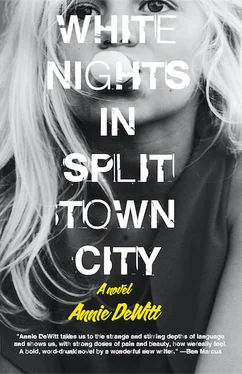
![Элизабет Ленхард - Свидание со смертью[Date With Death]](/books/79651/elizabet-lenhard-svidanie-so-smertyu-date-with-dea-thumb.webp)



